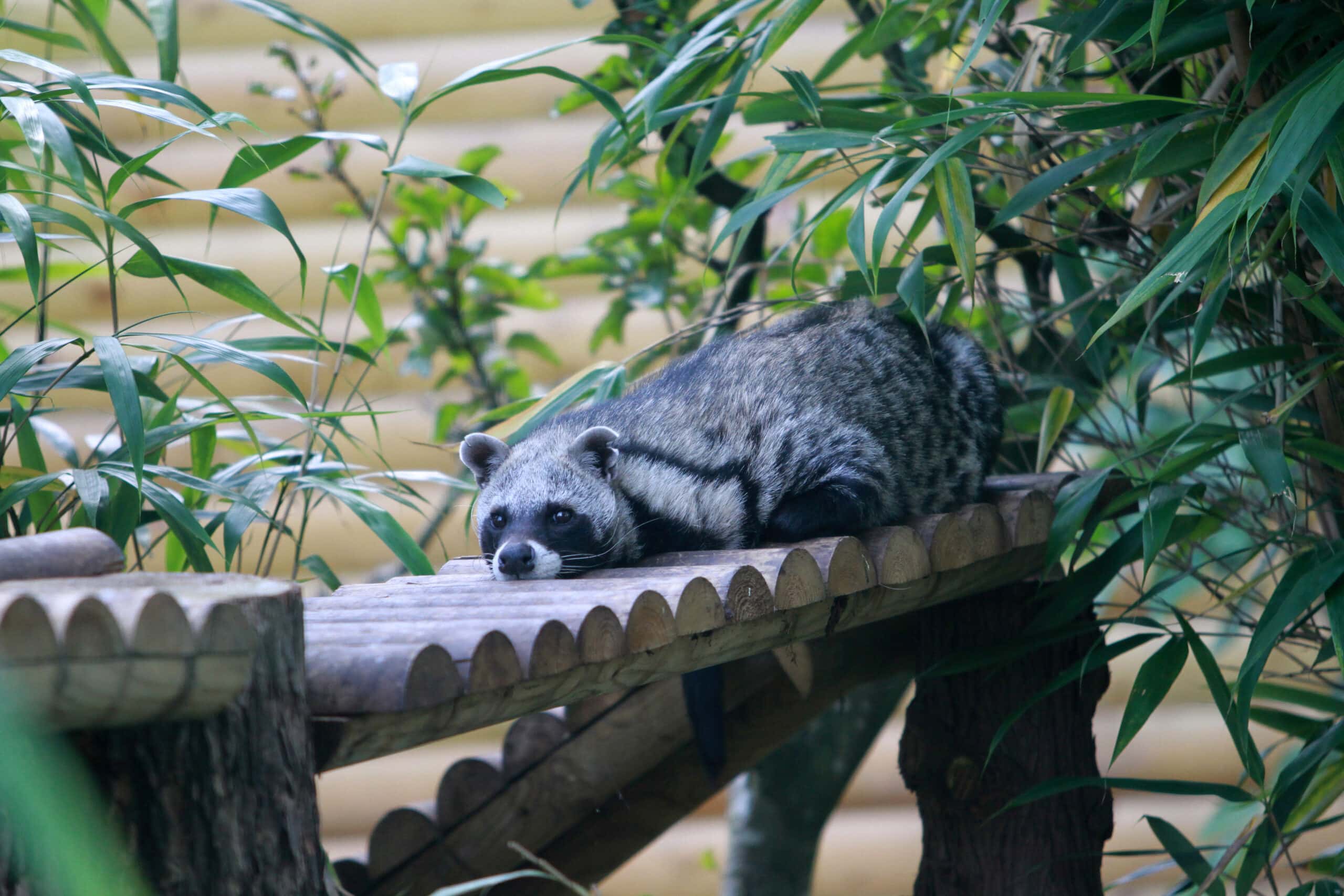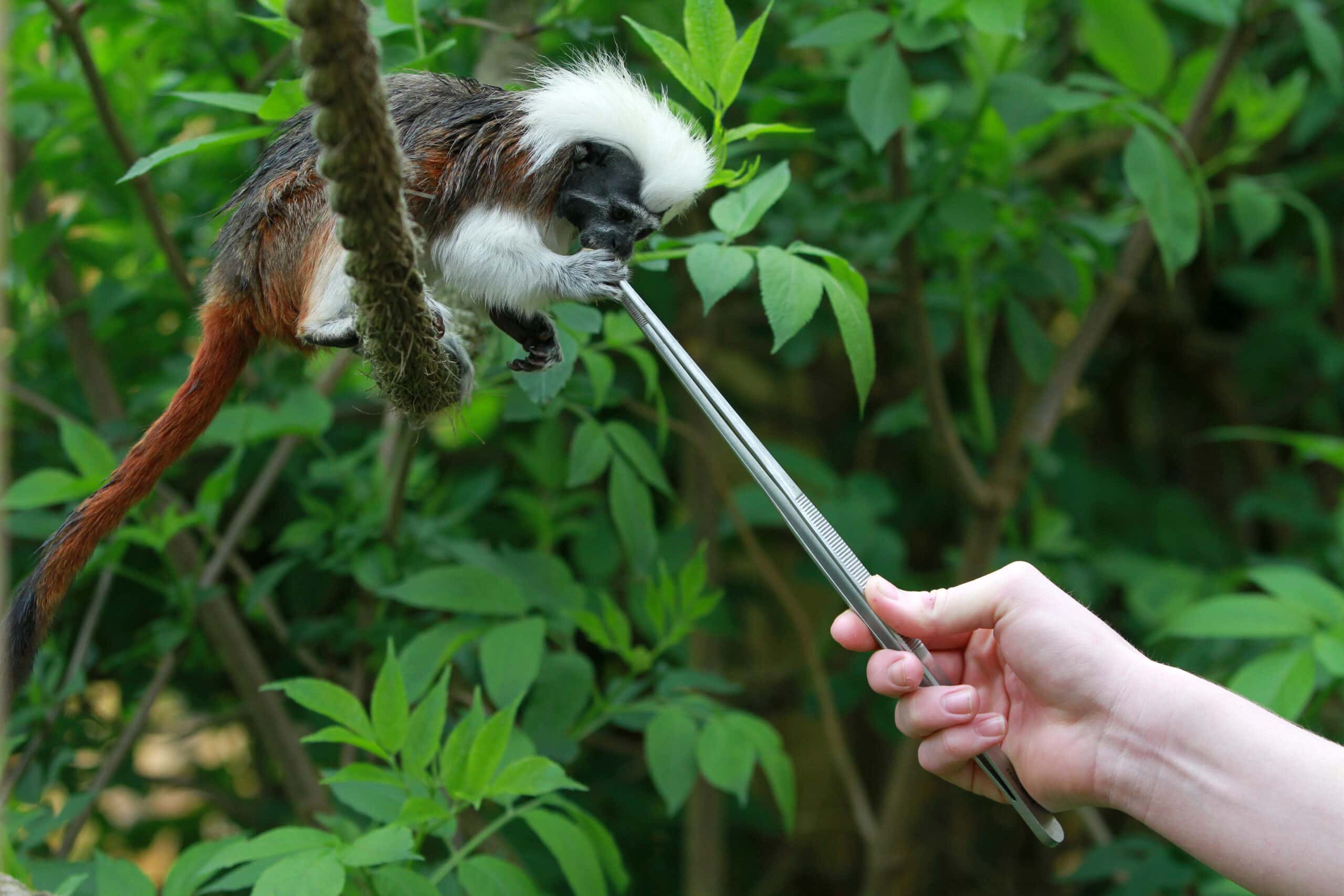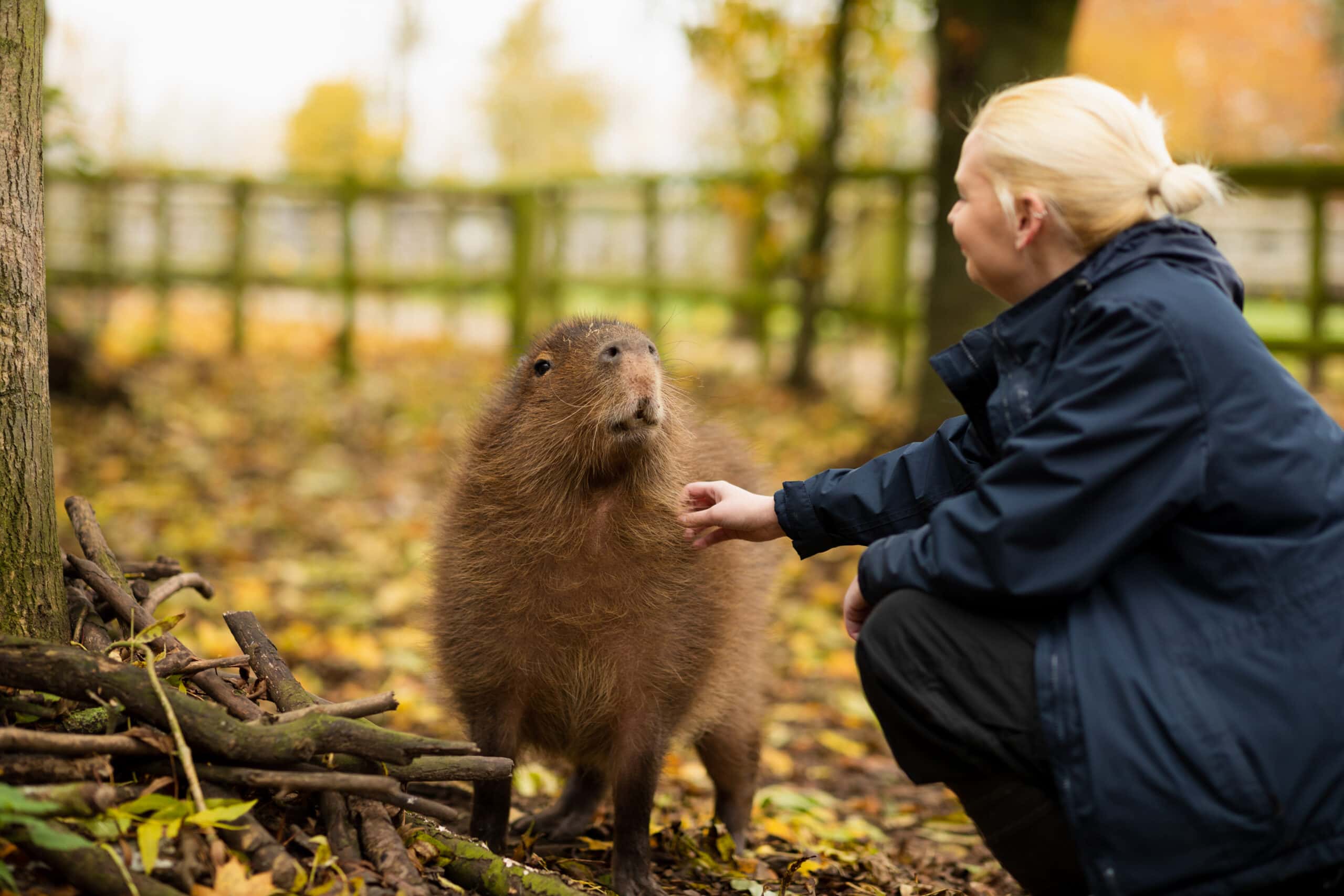Would you love to start your exciting and rewarding career in zoo management, but without the commitment of a full degree?
This one-year full-time course benefits from a unique combination of academic study with industry focused training in the management of zoo animals, including extensive access to our wide range of exotic species including primates, small carnivores, reptiles, amphibians and birds of prey.


As part of this course, you will develop a range of academic and professional skills, related to the zoo industry. Through practical husbandry sessions, in-class discussions and behavioural observations, you will gain an appreciation for the goals and challenges of managing animals in zoos. This knowledge can be applied to a diversity of careers in large or small-scale collections.
Our lecturers have many years of experience working in zoos across the sector, in a wide variety of roles which zoos can offer. They use this experience combined with their passion and knowledge.
The Cert HE would allow you to progress to a range of more specific zoo modules, such as zoo training, animal health and disease and zoo enclosure design, through further study on the Foundation Degree in Zoo Management.


Find out more about the Cert HE Zoo Management course, including entry requirements, modules and assessment methods, using the drop downs below.
A minimum of 64 UCAS points from one of, or a combination of, the qualifications below, ideally in a science-based or relevant subject:
Please note: we accept a maximum of 20 UCAS points from GCE AS Levels and that the Welsh Baccalaureate (core) and A Level General Studies will be recognised in our offer. We will also consider a combination of A Levels and BTECs/OCRs.
Non-standard entry: applicants aged 21 years of age or over without standard academic qualifications may be able to demonstrate considerable vocational experience and transferable skills. Their applications will be viewed on an individual basis to assess suitability. Any applicant who has not received certification for prior learning experiences, but has worked within the discipline, will also be considered. In some instances, applicants may be asked to attend an interview or complete a written assessment to support their application.
Contextualised Admissions: to support access and participation in Higher Education, University Centre Reaseheath operates a contextualised admissions policy, which allows reduced offers to be made to students with certain characteristics and/or social background. Further information can be found in the UCR Contextualised Admissions Policy, available on the website.
International Students: This course is not accepting applications from students requiring sponsorship for a Student visa. If you do not require sponsorship please contact UCRAdmissions@reaseheath.ac.uk for further information.
Students are expected to study and complete 120 credits which comprises six mandatory modules of study:
Your overall workload consists of class contact hours, independent learning and assessment activity, plus field trips. The following information gives an indication of how much time you will need to allocate to different activities at each year of the course:
Year 1: 30% of your time is spent in timetabled teaching and learning activity
Teaching, Learning and Assessment: 360 hours
Independent Study: 840 hours
Class sizes average between 10 – 40 for modules exclusively delivered on the programme. For those modules offered across several programmes, class size could be as high as 80 individual learners.
We design a wide range of assessments that will help you to develop industry standard skills and knowledge. The assessments consist of a combination on timed online assessments, of multiple-choice questions and short essays, practical assessments and presentations and written coursework. This written coursework can be in the form of reports, essays or posters, depending on the module. For Husbandry and Handling, there are assessed practical sessions, reflections and talks. For Introduction to Scientific Communication, there are quizzes based on the application of statistical software.
Students will be able to access course timetables for the academic year in September.
Timetables are subject to change, but most students can expect to spend 3-3.5 days per week on campus.
Tuition Fees
As a student at UCR, you will have two main costs to meet; your tuition fees and living costs.
Our full-time tuition fees for UK and EU students, entering University, can be found on our student finance page. These fees are charged for each academic year of a course and are set by the college annually.
Tuition fees for international students can also be found on our student finance page.
Equipment costs
Prices of equipment are subject to change depending on retailer.
Students may also wish to purchase their own personal copies of recommended set-texts to assist them with their studies. A full list of recommended texts is made available prior to enrolment. However, our campus library boasts sufficient stocks of all major texts to support student learning, frequently in e-book format, and the purchasing of texts is therefore not enforced.
Here you will find useful information about the services and support available at University Centre Reaseheath. Click to expand each item:
University Centre Reaseheath is committed to providing additional financial support to those who need it. To find out about the bursary schemes available visit our additional financial support page.
For students to get the best out of their time at University Centre Reaseheath, we must both recognise that we owe obligations to each other. These obligations are set out in our UCR Student Contract. Before you accept an offer of a place at University Centre Reaseheath, it is important that you read these contract conditions. If you are going to be living in Halls of Residence, you will also need to read the Student Accommodation Licence Conditions. Both of these contracts can be found here.
Click here to view the University Centre Reaseheath Student Protection Plan.
All UCR students are given the opportunity to apply for residential accommodation. First year students are guaranteed accommodation and this offer is made to all applicants who live more than a reasonable daily travelling distance from Reaseheath (providing you have applied before the UCAS equal considerations deadline. For full details on our halls of residence visit our accommodation page.
We have a team of dedicated professionals on hand to offer you support. These include our Student Services Team, Inclusive Learning Team, Library and Learning Resources Team and the Reaseheath Careers Service. You can find more information on the support provided at Reaseheath on our support page.
University Centre Reaseheath is proud to welcome international students. For more information, please visit our international students page.